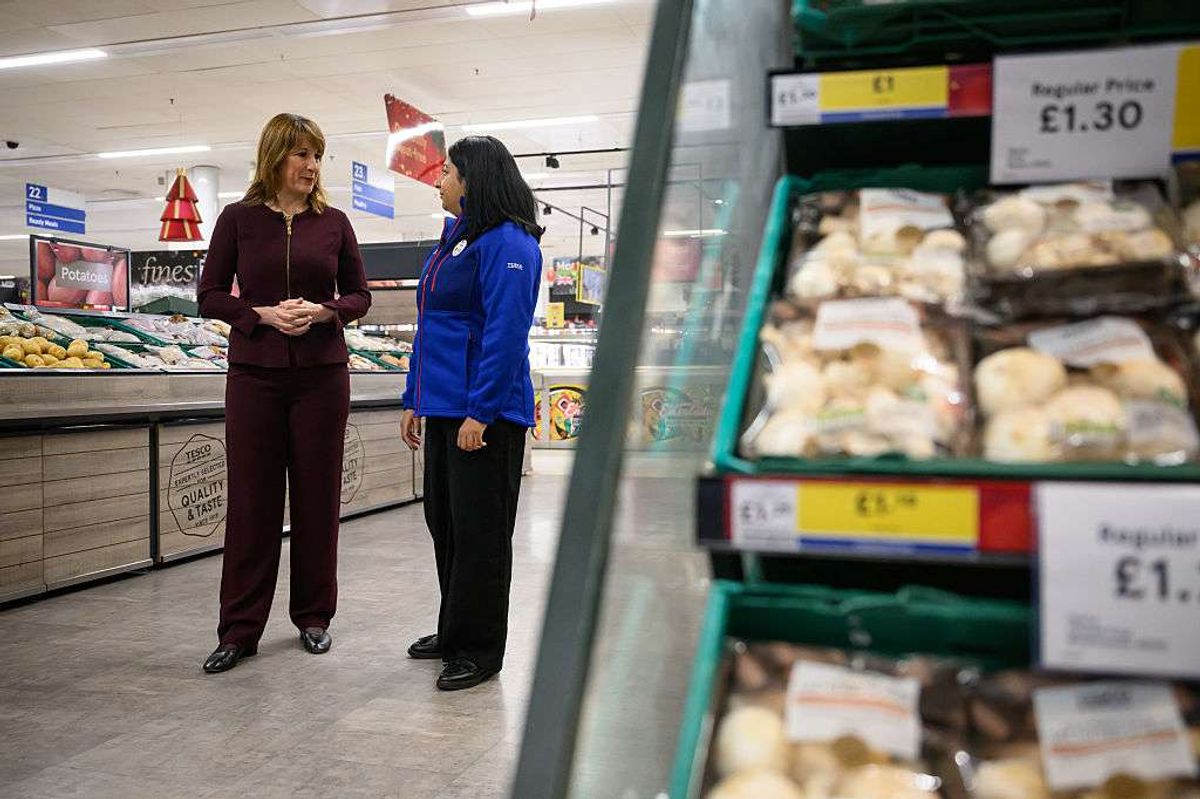Britain's annual inflation rate slowed in October, official data showed Wednesday, providing some relief to the struggling Labour government one week before unveiling its latest budget.
The Consumer Prices Index rose by 3.6 per cent over 12 months, down from 3.8 per cent in September, the Office for National Statistics (ONS) said in a statement.
The annual budget on 26 November is set to feature tax rises as Labour, badly trailing in polls, seeks to drive down government debt and fund investment in public services.
'Good news'
"This fall in inflation is good news for households and businesses across the country, but I'm determined to do more to bring prices down," chancellor Rachel Reeves said in a statement.
"That's why at the budget next week I will take the fair choices to deliver on the public's priorities to cut NHS waiting lists, cut national debt and cut the cost of living," she added.
The ONS said inflation's slowdown in October, in line with most analyst expectations, was driven mainly by gas and electricity prices rising less than a year earlier.
This was partially offset by rising food prices, which saw an increase to 4.9 per cent, versus 4.5 per cent last month.
James Walton, Chief Economist at IGD, said food inflation is “likely past its peak” and retailers are expected to use this as an opportunity to hold prices down to drive volume growth during the crucial Christmas trading period
“However, many shoppers are still finding it tough and will be looking around to find the best possible value for money, with IGD ShopperVista data showing that 66 per cent of people plan to shop for promotions more and 65 per cent plan to use their loyalty cards more as a way of managing household budgets,” Walton added.
“All eyes will now be on what is set to be a challenging Budget for the Chancellor. Food businesses will be assessing the implications in terms of additional costs impacting food inflation and any changes affecting households, which has the potential to impact spend.”
Rate cut on cards?
Analysts said the drop to inflation would likely see the Bank of England (BoE) cut its main interest rate in December, although its next policy decision could depend also on what the budget delivers.
Wednesday's data follows official figures last week that showed Britain's economy slowed in the third quarter, when unemployment rose.
Prime minister Keir Starmer's Labour party has struggled to consistently grow the UK economy since returning to power in July 2024 following 14 years of Conservative party rule.
Some economists estimate that measures announced at last year's budget, including a higher minimum wage, increased taxes on employers and other levies, have added as much as 1 percentage point to Britain's inflation rate, which remains the highest among major advanced economies.
Earlier this month, the BoE forecast inflation would stay above its 2 per cent target until mid-2027, largely due to wage growth that is faster than many BoE policymakers think is consistent with on-target inflation, given sluggish productivity growth.
Higher labour costs have been particularly felt across much of Britain's services sector.
"All eyes now turn to the budget" next week, noted Isaac Stell, an analyst at investment manager Wealth Club.
"With the expected fiscal tightening in the form of tax rises a foregone conclusion, policymakers at the BoE will be watching closely to see how these measures affect growth and demand.
"The Bank of England stands ready to deliver a pre-Christmas rate cut... and the consumer will be able to raise a glass to that."
It kept its main rate at 4.0 per cent earlier this month, with BoE governor Andrew Bailey insisting that the central bank needed to see more evidence of the UK annual inflation rate returning to its two-percent target.
Britain's retail banks tend to pass on BoE rate cuts to their customers, easing the cost of mortgages and business loans.


